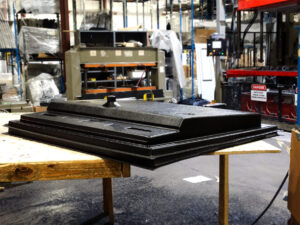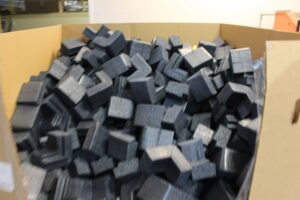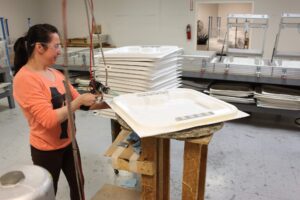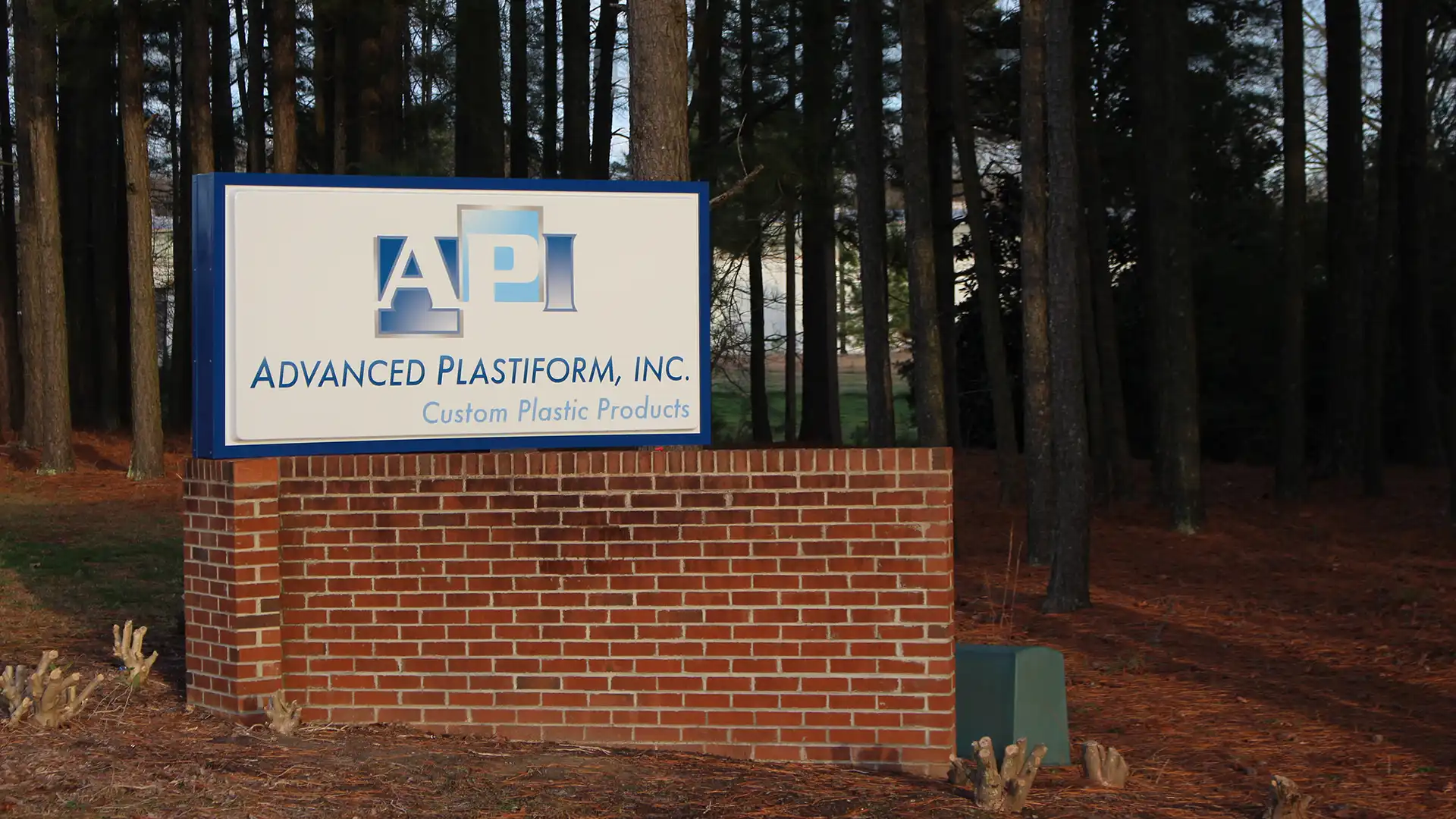Pennsylvania
Serving Pennsylvania from Our Central Location in North Carolina

Thermoforming is the advanced process of creating tools and equipment through the process of heating plastic sheets and constructing them into different molds and shapes. Advances in engineering technology have allowed for the heavy gauge thermoforming process to evolve into various methods. Each of these methods has their own applications and strengths. One of the few constants between all of these methods is the experienced engineering staff who see the process through to completion. There are many facets to the plastic forming procedure as well as numerous details to consider. Attributes such as impact resistance, distortion temperature, UV resistance, and sheet color are all considered when thermoforming.
Injection Molding

Injection molding excels in many areas when it comes to constructing equipment and tools. Due to this process using thermoplastic pellets, additives and colors can be added during the molding process. This creates more flexibility for customizing properties and materials for a finishing part. Products made under this system are usually painted or coated for sleek and aesthetically pleasing purposes.
The advantages of injection molding boils down to the fact that it allows for low per unit molded costs. This is very important since it can offset the high tooling costs that come with the injection process. When used for the right projects, such as those requiring several units to be made, the injection process can be very useful. Injection molding allows for the plastic sheet to wrap tighter around its designated mold. When the plastic sheet has a tighter grip on the mold it makes it easier for detailed designs to be added.
Vacuum Forming
During the vacuum forming process, sizable plastic sheets are heated to a temperature that brings the plastic into a more relaxed physical state. Once the heating is completed the plastic is flexible yet durable. The vacuum then extracts the air from between the heated plastic sheet and the mold. Despite being one of thermoforming's older methods, it still holds up and is best suited for certain applications.
Due to its simple method and nature, vacuum forming provides excellent work when constructing material such as acrylic, which is transparent. These materials can then, in turn, be used to replace fiberglass.
Twin Sheet Thermoforming

When it comes to one of the largest and most recent advances made in thermoforming, twin sheet forming is at the top of the list. The twin forming method allows for both sides of a product to be controlled separately before being merged. This process is made useful when creating and merging opposite sides of a whole. Twin forming broadens the possibilities of what can be thermoformed, such as structures with hollow interiors and sturdy exteriors. It also allows for features to be added into the middle of equipment. This makes way for interior structural support for products such as air ducts, or vending machines.
Twin Sheet thermoforming is a complex process. It consists of heating two separate sheets to a precise temperature and then aligning those sheets perfectly so they can be merged. In order to get the best quality twin formed product, a thorough understanding of the conditions and procedures presented in this system is a necessity. Surface finish is very important when it comes to thermoformed products. When twin forming, visible inconsistencies in the surface of a product can appear around the areas where the two halves were merged. To cure this blemish, the mold can be bead-blasted, which will give the panel a textured finished.
Pressure Forming
Pressure forming, as the name suggests, uses air pressure. Just like vacuum forming, pressure forming uses vacuum technology. The difference is that pressure forming uses air force to push the plastic against the mold. This process can use up to three times the amount of air pressure than vacuum forming. A large amount of air pressure allows the heated plastic sheet to wrap around the mold tighter. This leads to more quality edges and a great surface finish.
During the pressure forming process, the heat travels through the plastic quicker, reducing the amount of time needed to finish producing the product.
Thermoforming Company Serving Pennsylvania

Searching for a thermoforming company servicing the entire state of Pennsylvania including Philadelphia, Pittsburg, Harrisburg, Lancaster, Allentown, Scranton and all other areas within Pennsylvania? Contact the leaders in custom thermoformed plastic, Advanced Plastiform, Inc. With its central proximity to the Southeastern US, Mid-Atlantic and Northeast, our North Carolina facilities are uniquely positioned to best serve your Pennsylvania company needs. API offers customers the expertise of staffed engineers and on-site manufacturing and inventory management. From concept to delivery, API is your answer for custom plastic manufacturing.

